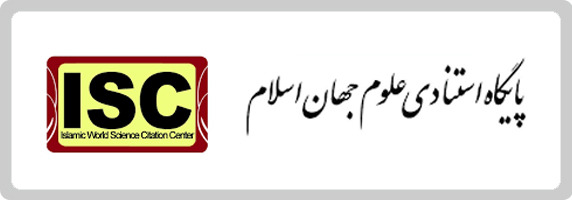Validation of the Model of the Impact of School-Based Curriculum Planning on Academic Self-Efficacy with the Mediating Role of Decentering
Keywords:
School-based curriculum planning, Decentering, Academic self-efficacy, Structural equation modelingAbstract
The aim of this study was to validate a model examining the effect of school-based curriculum planning on students’ academic self-efficacy with the mediating role of decentering. This quantitative study employed structural equation modeling. The statistical population consisted of principals, teachers, and students in public and private high schools in Mazandaran Province. In the first phase, 60 principals and 180 teachers completed the school-based curriculum planning questionnaire, and in the second phase, 950 students responded to the Morgan and Jinks Academic Self-Efficacy Scale. Stratified random sampling was applied, and data were analyzed using AMOS software. The results revealed that all relationships among the main variables were statistically significant. The dimensions of curriculum design, implementation, and evaluation had positive and significant effects on decentering, while these dimensions also directly and indirectly influenced academic self-efficacy. Decentering exerted a significant positive effect on academic self-efficacy. Model fit indices (CMIN/DF=2.47, RMSEA=0.058, CFI=0.940, GFI=0.936) confirmed that the proposed model had a satisfactory fit. Findings suggest that school-based curriculum planning plays a critical role in enhancing academic self-efficacy, and this relationship is strengthened by decentering. Granting greater autonomy to schools in designing, implementing, and evaluating curricula can improve both educational quality and students’ perceptions of their academic competence.
Downloads
References
Aboutalebi, N., Saffarian Hamedani, S., Taghvaee Yazdi, m., & Tajari, T. (2023). Presenting the Workplace Curriculum Model with a Futurology Approach in the Iran's Higher Education System. Iranian Journal of Educational Society, 8(2), 296-310. https://doi.org/10.22034/ijes.2023.708216
Dadkani, M. Y., Saadatmand, Z., & Rahmani, J. (2021). Designing a Decentralized Primary Education Curriculum in Iran [Applicable Artice]. Iranian Journal of Educational Sociology, 4(3), 61-67. https://doi.org/10.52547/ijes.4.3.61
Eslamiharandi, F., Karimi, F., & Nadi, M. (2018). Presenting an Educational Justice Model to Iran’s Education System. Journal of Applied Issues in Islamic Education, 3(8), 7-28. https://www.magiran.com/paper/1959614
Foret, M., Scult, M. A., Wilcher, M., Chudnofsky, R., Malloy, L., Hasheminejad, N., & Park, E. R. (2011). Integrating a Relaxation Response‐based Curriculum Into a Public High School in Massachusetts. Journal of adolescence, 35(2), 325-332. https://doi.org/10.1016/j.adolescence.2011.08.008
Hoover, E. B., Butaney, B., & Stoehr, J. D. (2020). Exploring the Effectiveness of Mindfulness and Decentering Training in a Physician Assistant Curriculum. The Journal of Physician Assistant Education, 31(1), 19-22. https://doi.org/10.1097/jpa.0000000000000288
Kafshchian Moghadam, A., Maleki, H., & Sadeghi, A. (2024). Designing a Citizenship Rights Curriculum Model for the Second Period of Elementary Education [Research Article]. Iranian Journal of Educational Sociology, 7(2), 1-7. https://doi.org/10.61838/kman.ijes.7.2.1
Kang, S. M., & Lim, H. K. (2021). The Effect of Past Peer Victimization on Satisfaction of Life in Early Adulthood: Mediating Effects of Intrusive Rumination and Decentering. Korean Association for Learner-Centered Curriculum and Instruction, 21(17), 653-666. https://doi.org/10.22251/jlcci.2021.21.17.653
Khondaqi Amin, M., & Dehghani, M. (2010). A Reflection on Centralization, Decentralization, and the Return to Centralization: Implications for Iran's Curriculum System - A New Perspective. Journal of Educational and Psychological Studies(11(2)), 165-184. https://fedu.um.ac.ir/article_33559.html?lang=en
Khosravi, R. A., & Mehrmohammadi, M. (2023). Design and Validation of Decentering Schemes for Decision-Making about Curriculum Based on Schwab’s Theory and Features of the Curriculum Development System in Iran [Research Article]. Iranian Journal of Educational Sociology, 6(1), 12-30. https://doi.org/10.61186/ijes.6.1.12
Kim, S., & Kim, E. K. (2024). Effects of Curriculum-Linked Social Story Intervention With Video Self-Modeling on Academic Engagement Behaviors of a High School Student With Autism Spectrum Disorders. Korean Journal of Special Education, 59(2), 121-152. https://doi.org/10.15861/kjse.2024.59.2.121
Martin, I., Cunningham, P. D., Zyromski, B., Núñez, M., Romero, S. D., & Choi, J. (2022). Small-Group Investigation of the True Goals Curriculum With High School Students: A Randomized Control Study. Professional School Counseling, 26(1). https://doi.org/10.1177/2156759x221137312
Mehr Mohammadi, M. (2018). An Analysis of the Policy of Decentralization in Curriculum Planning in Iranian Higher Education: Necessities and Opportunities. Iranian Higher Education, 1, 3-18. https://www.sid.ir/paper/135908/en
Mitchell, D., Martin, L., Ebersole, D., & Sperlich, E. (2024). BREAK FREE and Fly: A CBT School Counseling Group Curriculum for Anxiety. Professional School Counseling, 28(1). https://doi.org/10.1177/2156759x241293636
Nirmalasari, N., Wahyudin, D., & Darmawan, D. (2024). Development of Alternative Thinking Strategy Curriculum Design to Improve Academic, Social and Emotional Competence. International Journal of Learning Teaching and Educational Research, 23(3), 48-66. https://doi.org/10.26803/ijlter.23.3.3
Downloads
Published
Submitted
Revised
Accepted
Issue
Section
License
Copyright (c) 2025 رمضانعلی غلامي متکی (نویسنده); بابک حسین زاده (نویسنده مسئول); سیده زهرا حسینی درونکلائی (نویسنده)

This work is licensed under a Creative Commons Attribution-NonCommercial 4.0 International License.






